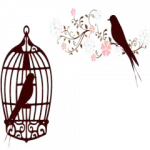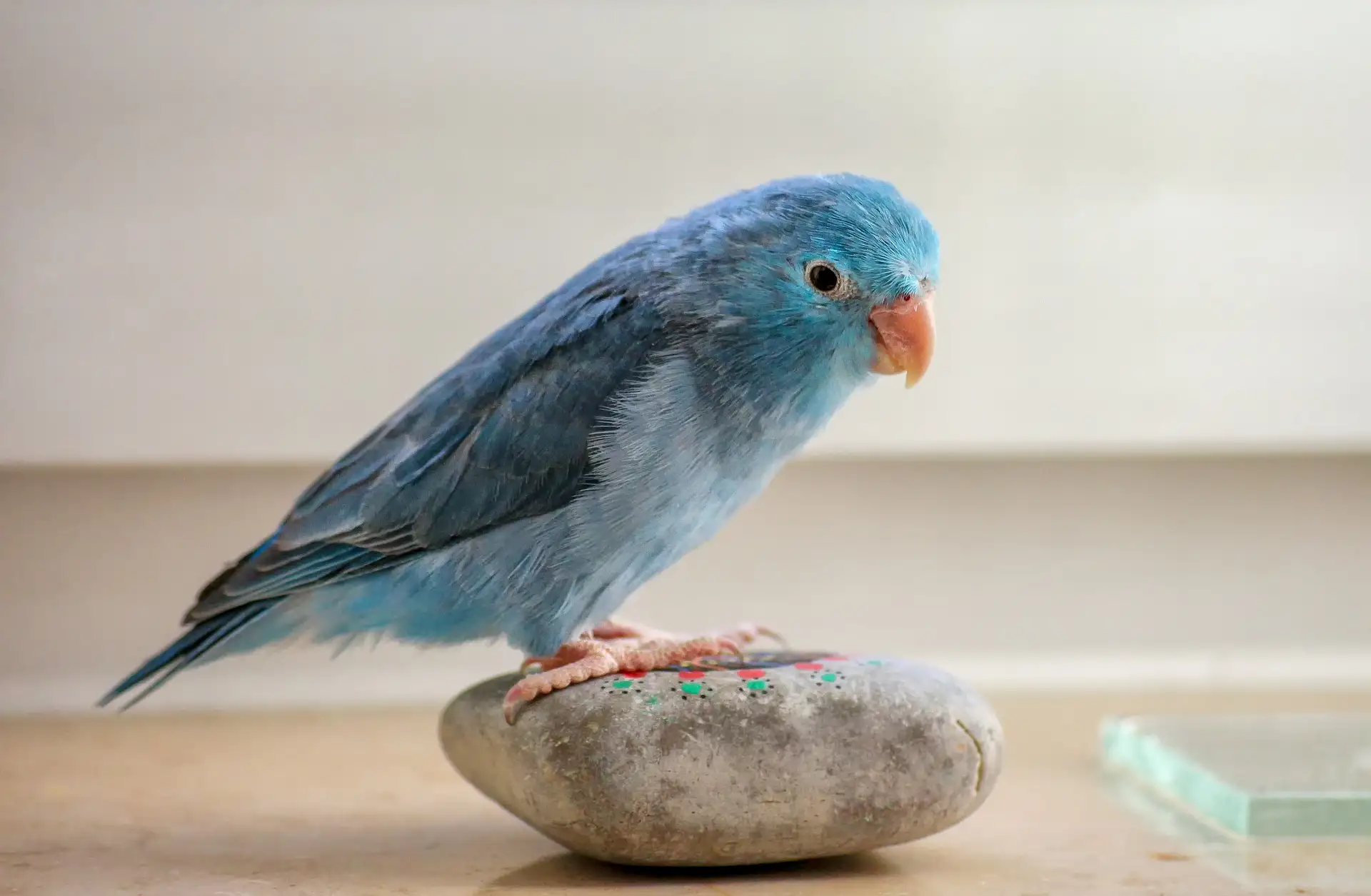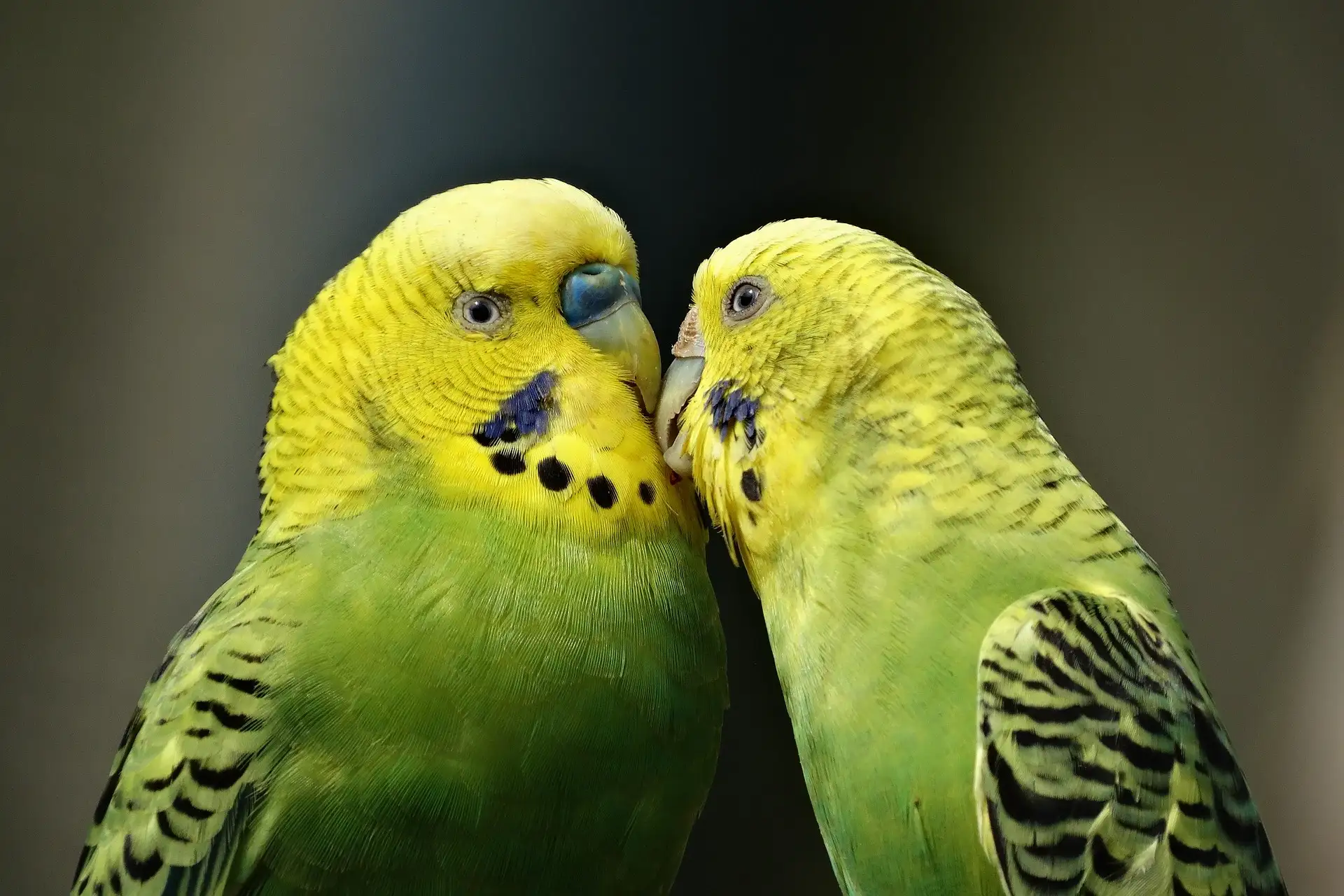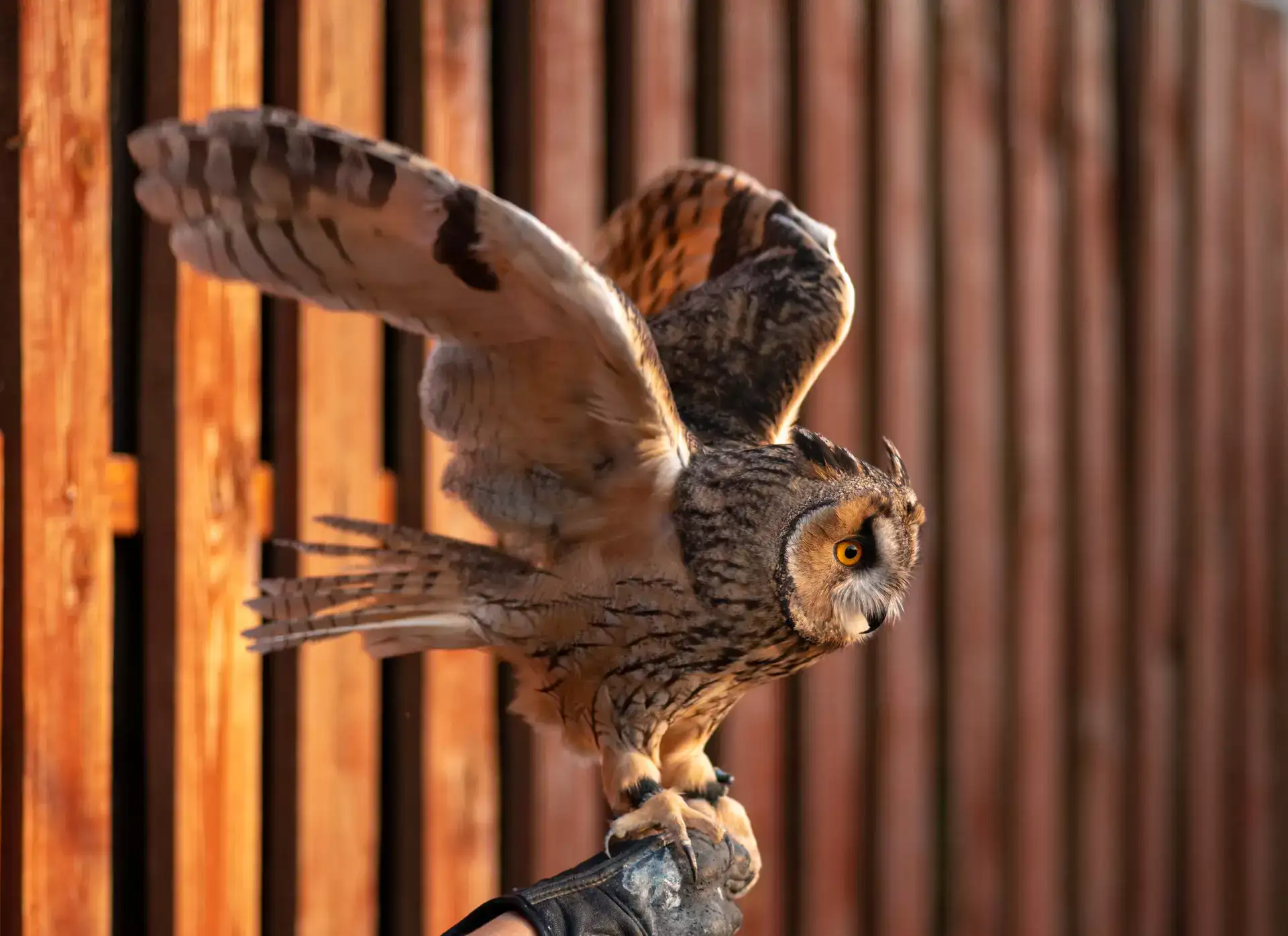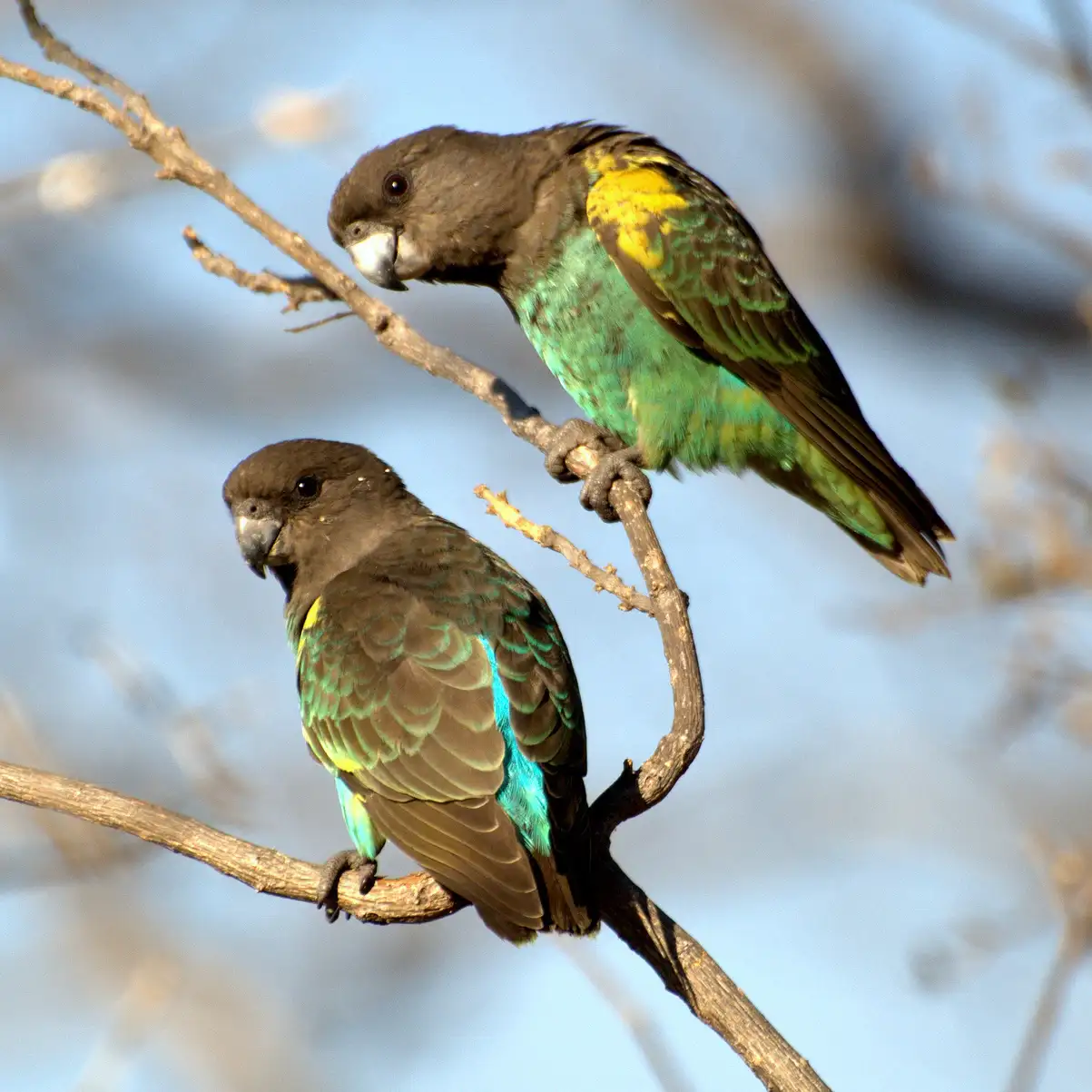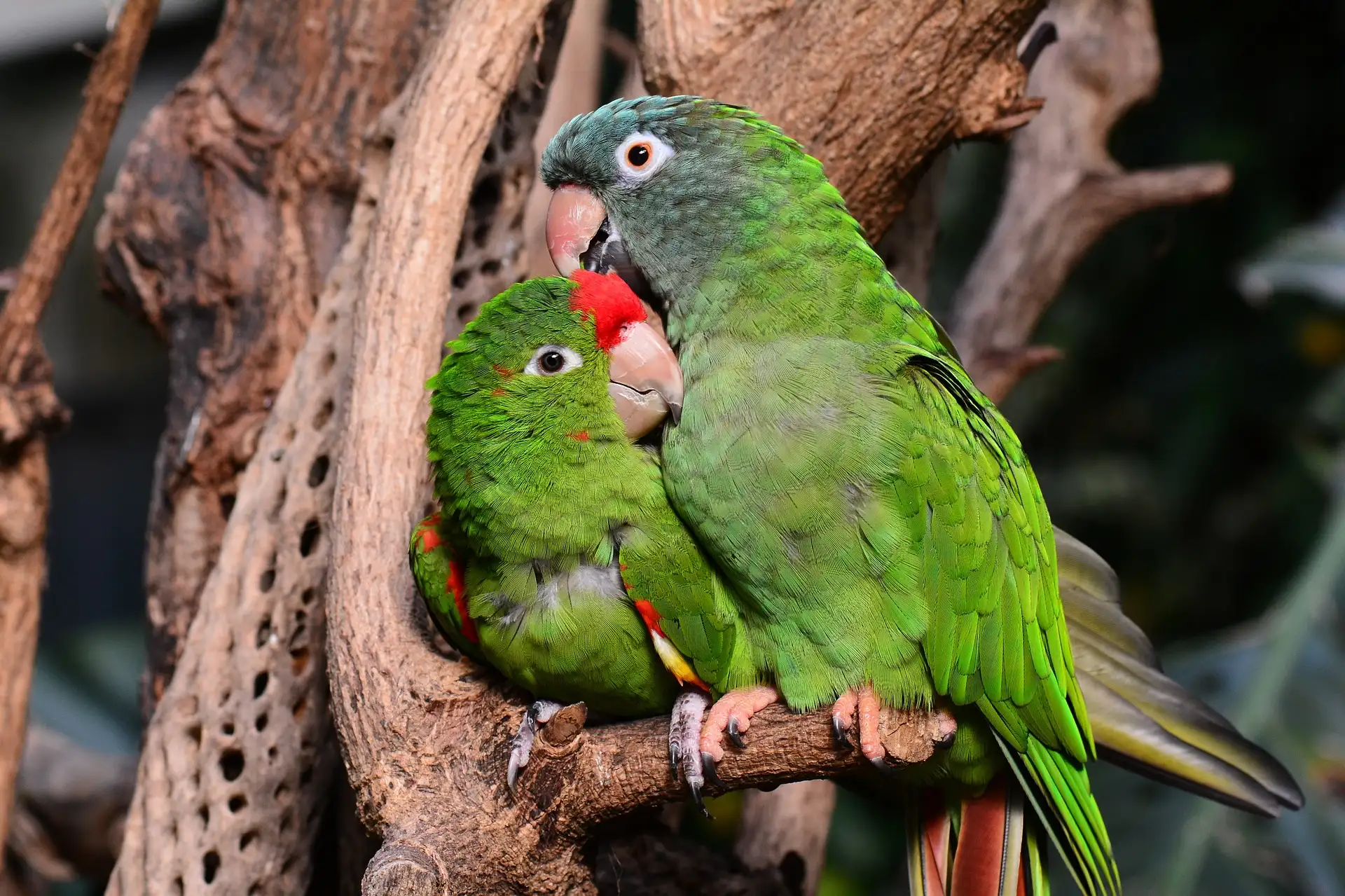Cockatiel Care Guide
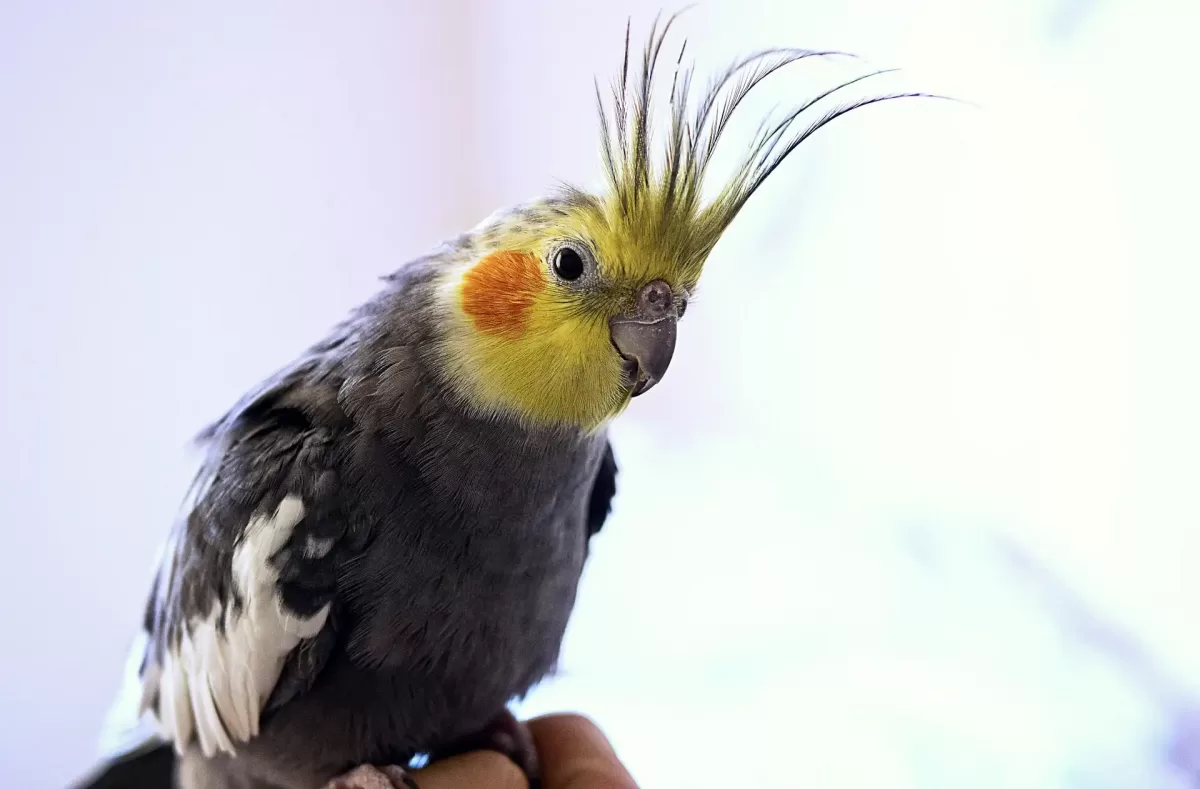
Cockatiels are needy birds to keep, they need lots of attention and time outside of their cage daily, as well as lots of space in their cage. Learn all about Cockatiel care here.
The cockatiel is a bird that comes from Australia and they have a lifespan of 15-25 years in captivity.
Cockatiel Size:
Cockatiels are small to medium-sized parrots, the smallest member of the Cacatuidae family.
Cockatiels are typically 15-25 cm (6-10 inches) from head to tail. They have a wingspan of around 30 cm (12 inches). Male cockatiels can get up to 9cm (4 inches) tall, and females around 7cm (3 inches).
Cockatiel Care:
The cockatiel is an attractive pet bird that can be a very rewarding companion. These birds are social, curious and intelligent. They have the ability to mimic human speech and even other animal sounds!
Cockatiels are very social and love to interact with people. They learn tricks quickly and enjoy being part of activities in the house. Cockatiels need space and attention to thrive. Much like any pet, they need room to explore, toys to play with and a safe place for napping.
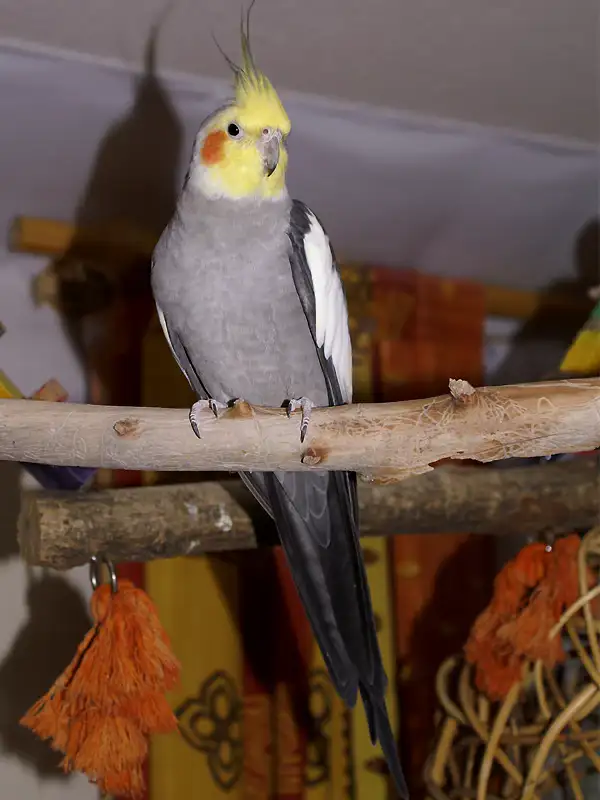
Cockatiel Diet:
A healthy cockatiel diet consists of millet, pellets, seeds, fresh fruit and vegetables.
Cockatiels also eat protein-rich items such as eggs and insects but these should only be fed occasionally or not at all due to the risk of contracting salmonella or listeria from the food source.
Seeds should make up the bulk of their diet. These seeds should be given in moderation as they can get fatty if overfed and can lead to diarrhea. A good mix is 20% millet, 20% safflower seed, 20% sunflower seed and 40% canary seed. Some cockatiel owners will also sprinkle hemp seeds on top for flavor.
Fruits and vegetables should be given sparingly as they are high in sugars but provide important vitamins and nutrients that cockatiels need to stay healthy. For a healthy and nutritional diet, fruits like apples, oranges, grapes, carrots and green beans are all excellent choices because of their nutritional value.
Cockatiel Habitat:
Cockatiel will enjoy plenty of time loose in your home to interact, play, and explore. They need a spacious cage with plenty of toys and places to perch.
A Cockatiel can do well alone if its human owner has lots of time to devote to giving it attention and affection. In essence, at this point, the human owner will become its mate. However, since they are such social birds that do seek companionship having a pair of them will lessen the demands on your time as they’ll keep each other company.
A large enough cage is necessary that will allow your Cockatiel room to move about and “spread its wings”, especially if you decide to keep two birds.
Cockatiel Behavior:
The cockatiel can be very friendly and may be a good pet for children to handle with care and adult supervision.
The cockatiel is a generally sociable bird, and it will often enjoy interaction with humans. They are often happy to sit on the shoulder of their owner or interact with other humans nearby.
A Cockatiel will often “wag its tail” seemingly for no reason, but in fact this is a sign that they’re happy and “living the good life”. In contrast, when a Cockatiel is unhappy or upset they’ll often slam their toys around, banging them against their cage bars.
Discover more about the Cockatiel here.

Aerika Pedersen – Full-time writer, bird owner, and mother.
Aerika spent three years caring for birds at the Antwerp ZOO in Belgium before deciding to start her own family and write from home to share her experience and knowledge with other bird lovers.
